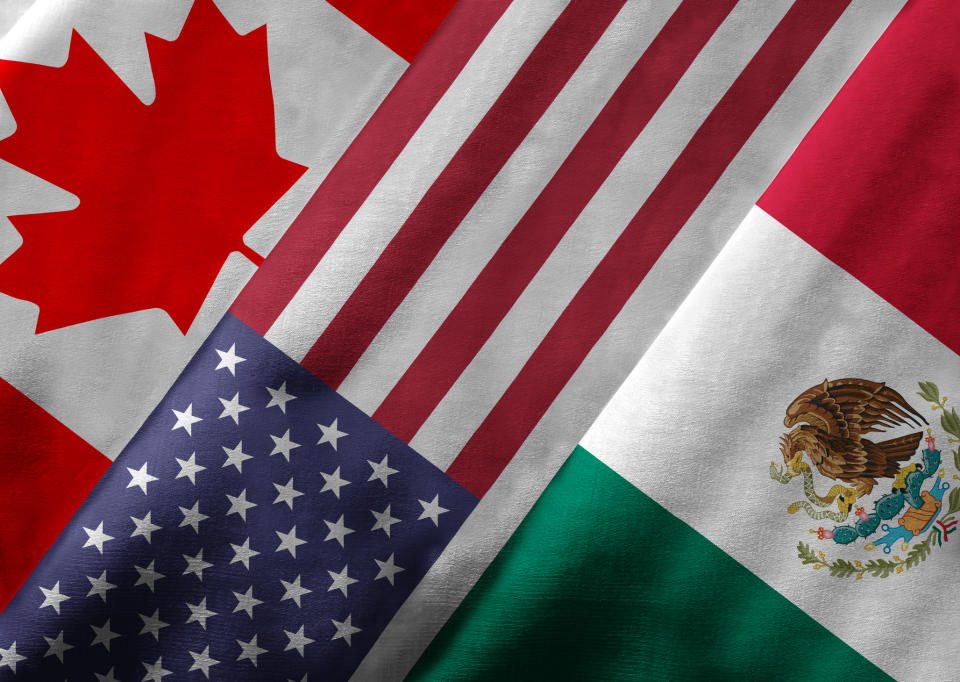Aurora Cannabis Scores a Victory With Peltz
Aurora Cannabis (NYSE: ACB), Canada's second biggest marijuana stock by sales and market share, has set its sights on partnerships that will allow it to expand into new markets as more countries pass pro-pot laws. The company's management told investors today that it's considering partnerships with companies to execute on its global strategy, and to that end, it's hired billionaire investor Nelson Peltz as a strategic advisor. The decision to sign Peltz on to help it navigate new markets is savvy because it could accelerate the company's transition into a consumer-goods powerhouse.
A big company that's getting bigger
Arguably, no cannabis company has been as aggressively acquiring competitors as Aurora Cannabis. The company's willingness to use its stock as currency so that it could acquire peers, including CannaMed and MedReleaf, has put it closely behind market-share leader Canopy Growth (NYSE: CGC) in terms of marijuana grow capacity, revenue, and market share.

IMAGE SOURCE: GETTY IMAGES.
In February, the company reported fourth-quarter figures, including the first six weeks of revenue from Canada's fledgling recreational market, which opened in mid-October. The results showed that Aurora Cannabis' penchant for M&A is paying off in the form of soaring production and revenue. Sales clocked in at $54 million Canadian, including CA$21.6 million in adult-use, recreational market sales. That means the company nabbed 17.5% of the CA$307 million spent on legal cannabis in Canada last quarter. For comparison, its revenue was only CA$11.7 million in the same quarter a year ago.
The company's nowhere near done growing, either. Its marijuana production grew 57% quarter over quarter to 7,822 kilograms in the fourth quarter, and as of February, its annual marijuana production capacity was running at 120,000 kilos. The company expects to have 25,000 kilos available for sale exiting June, and management's targeting reaching a 150,000-kilo production pace before the end of 2019. Delivering on those targets should help it increasingly win sales in Canada as CA$6 billion in annual marijuana sales shift to the regulated market from the black market.

IMAGE SOURCE: GETTY IMAGES.
Going global
Canada accounts for most of Aurora Cannabis' revenue now, but that's likely to change in the future, especially if the U.S. legalizes marijuana nationwide. The U.S. represents about one-third of the $150 billion global marijuana market, according to the United Nations.
In the U.S., 33 states have passed laws allowing marijuana use, including 10 states allowing adult recreational use. However, marijuana remains a Schedule 1 controlled substance at the Federal level. That's a problem for Aurora Cannabis, because major stock exchanges prevent companies listing on them, including Aurora Cannabis, from engaging in businesses until they're legal federally.
Because of this restriction, Aurora Cannabis has been focusing its eyes elsewhere. It has operations in 22 countries on five continents, including Germany, where a legal medical marijuana market opened two years ago. The medical marijuana market in Germany is small, but its population is double Canada's, so it could move the revenue needle someday. If other European Union countries follow Germany's lead, Aurora Cannabis thinks the addressable market there could total nearly CA$100 billion.
Although Aurora Cannabis has taken a patient approach to the U.S. market so far, that could change soon. In December, the U.S. Farm Bill removed hemp, a strain of cannabis sativa, from the controlled-substances list. Like marijuana, hemp is high in the chemical cannabidiol (CBD), which is associated with health benefits. The change in regulating hemp may allow Canadian companies a chance to build hemp farms and CBD extraction facilities and establish distribution relationships that could one day be leveraged if marijuana becomes legal nationwide too.
In January, Canopy Growth announced that it will invest up to $150 million on hemp infrastructure in New York because of the Farm Bill's passage. Aurora Cannabis hasn't announced similar plans, but it may only be a matter of time given Canopy's decision.
A consumer-goods guru
Beer, wine, and spirits company Constellation Brands (NYSE: STZ) owns a 38% stake in Canopy Growth, and it estimates the global, legal market for marijuana could exceed $200 billion in 15 years. Recognizing that consumer products, including beverages, that use marijuana's chemical cannabinoids, including CBD, as ingredients will represent a big portion of future sales, Aurora Cannabis' decision to bring Nelson Peltz on as an advisor is wise.
Peltz is the founding partner and CEO of Trian Fund Management, an investment firm he formed in 2005. In his role as an activist investor, Peltz serves or has served on the board of directors of a slate of consumer companies, including Procter & Gamble (NYSE: PG) and Mondelez International. Before forming Trian, he was the CEO and chairman of Triarc Consumer Products Group, which owned Arby's Restaurant Group and The Snapple Beverage Group, which is now part of Keurig Dr Pepper.
He's been the non-executive chairman of Wendy's (NASDAQ: WEN) since June 2007 and a director at Wendy's since 1993. He's also an independent director of Sysco, a food distributor; an independent director of Madison Square Garden; and a former director at H.J. Heinz and Kraft Heinz Foods.
His investment portfolio includes a $3.6 billion position in Procter & Gamble, an $884 million investment in Mondelez, and a $471 million investment in Wendy's.
In short, Peltz is well tied into the consumer industry, and he has the operational chops and deal-making experience necessary to help Aurora Cannabis leverage its market-leading position to cut deals with food and beverage companies, packaging companies, distribution companies, and retailers.
In exchange for his prowess, Aurora Cannabis has granted options allowing Peltz to purchase 19,961,754 common shares at CA$10.34 per share. The day before this deal was announced, Aurora Cannabis' shares closed at CA$10.64.
These options will "vest ratably over a four-year period on a quarterly basis," and vesting can be accelerated by the "consummation of certain defined transactions" and "the closing price of Aurora's common shares being at least CA$31.02 and additionally CA$41.36 for a specified number of trading days." He can exercise any portion of his vested options within seven years.

IMAGE SOURCE: GETTY IMAGES.
What to watch next
The design of this agreement suggests Peltz will be around a while, but Peltz is getting registration rights with his shares, so it will be important to see how long he holds on to them if he exercises them.
For Aurora Cannabis' existing investors, the key to the success of this deal is twofold. His operational experience could help the company leverage sales growth for profitability sooner, and his connections could pave the way for agreements that provide Aurora Cannabis with a deep-pocketed partner willing to share the cost of its expansion plans. It's anyone's guess whether this relationship leads to cannabis-inspired Snapple-style beverages, crackers, and cookies, distributed by a company like Sysco, but anything's possible. Given that Canopy Growth's cash stockpile is over $4 billion because of Constellation Brands' investment last year, tying up with a big consumer-goods company so it can continue to hold its own with Canopy Growth could be crucial as this industry develops.
More From The Motley Fool
Todd Campbell has no position in any of the stocks mentioned. His clients may have positions in the companies mentioned. The Motley Fool is short shares of Procter & Gamble and recommends Constellation Brands. The Motley Fool has a disclosure policy.

 Yahoo Finance
Yahoo Finance 